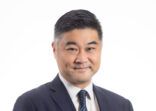Seventy percent of the growth is expected to come from net new inflows, while the remaining 30% will come from market appreciation, the report noted.
At the moment, ETF assets in the region stand at around $430bn, more than triple their size in 2012, which was $136bn.
However, the ETF market in the region still lags North America’s $3.5trn and Europe’s $800bn ETF markets. The net inflows into ETFs in Asia-Pacific were also slower during the five-year period ending 31 December 2017, at $200bn compared to $1.9trn for North America and $500bn for Europe.
“Although APAC institutions are increasing and broadening their ETF usage, the bulk of the flows tends to be directed towards US and European exchanges,” Barbara Ferraresi, Broadridge’s Singapore-based director for global distribution solutions, said in a statement.
The retail penetration of ETFs also remains low across the region, Yoon Ng, Singapore-based director for Asia global market intelligence at Broadridge, told FSA. One of the key reasons for that is the lack of a fee-based distribution model, which would give distributors an incentive to promote ETFs.
“Whilst still at its infancy in Apac, we do see signs of private banks incorporating ETFs in client portfolios as HNWIs become more fee-aware,” she said. Robo-advisors using ETFs in their model portfolios will also help drive the growth, she added.
HK and China ETF markets to grow fastest
While Japan is expected to remain the biggest ETF market in the near future, its market share is likely to decline because of reduced support from the Bank of Japan, according to Broadridge.
In the meantime, the ETF markets in China and Hong Kong are projected to grow fastest, especially after the launch of the ETF Connect scheme between Hong Kong and the mainland, expected late this year, despite delays.
Today Japan accounts for around 62% of the Apac ETF market. It is followed by Hong Kong and China, each holding 9% of the region’s ETF assets.

Local firms continue to dominate
Domestic firms continue to dominate the ETF market in the region, accounting for 85% of the industry’s assets, according to the Broadridge report.
APAC ETF AUM ($bn)
|
2017 |
2012 |
|
| Domestic firms |
369 |
92 |
| Global firms |
44 |
24 |
| Rest of industry |
11 |
19 |
| ETF specialists |
6 |
1 |
| Total |
430 |
136 |
Source: Broadridge Financial
However, in Hong Kong, the largest ETF managers are a combination of global and domestic firms, according to data provided by Broadridge.
Top 10 ETF managers by AUM
| Fund house |
AUM ($m) |
| HSBC (Hang Seng) |
13,422.33 |
| State Street |
12,806.81 |
| BlackRock |
5,521.19 |
| CSOP AM |
3,418.39 |
| China AMC |
1,820.08 |
| Mirae Global AM |
503.50 |
| Bank of China Hong Kong |
479.08 |
| BMO |
282.42 |
| Value Partners |
157.42 |
| Vanguard |
140.35 |
Source: Broadridge Financial, AUM as of December 2017.
The ETF market in Hong Kong is dominated by products focused on China and Hong Kong. The five largest ETFs listed on the Hong Kong Exchange are all Hong Kong or China equity funds.
Top 5 ETFs in Hong Kong
| Fund house |
ETF name |
Sector |
AUM ($m) |
| State Street |
Tracker Fund of Hong Kong |
Equities Hong Kong |
12,723.71 |
| HSBC |
Hang Seng Index ETF |
Equities Hong Kong | 7,610.38 |
| Hang Seng H-Share Index ETF | Equities China |
5,382.61 |
|
| Blackrock |
iShares FTSE A50 China Index ETF |
Equities China |
3,954.93 |
| CSOP |
CSOP FTSE China A50 ETF |
Equities China |
2,968.70 |

















